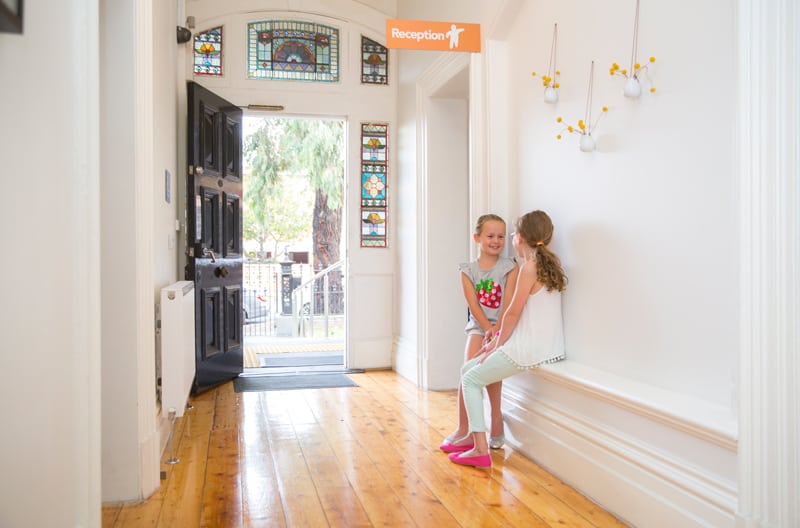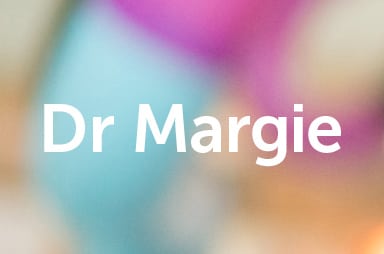Do we need a sugar tax to help protect our kids’ teeth?
One of the few things that has shocked me most in recent years is the growing number of kids I see in my practice with tooth decay. Children as young as 18 months are having surgery to remove decayed and rotting teeth as a result of drinking sugary soft drinks or fruit juice from baby bottles and sippy cups. It’s estimated that as many as half of all Australian children drink one can of soft drink a day, and 13 per cent are drinking three cans or more. One two-year-old I saw recently had only rotten stumps of teeth from going to bed at night drinking fruit juice in a bottle because she didn’t like milk. If your kids are like mine, the cry for sugar is relentless so what can you do to help look after your kid’s teeth?
We know that tooth decay is largely preventable yet it’s estimated almost half of Australian kids have tooth decay by the time they are six. The Australian Child Health Poll revealed that one in ten parents rate dental issues as a big health problem for their own children. In Victoria, we know that about one in every 250 Victorian kids less than five years is attending hospital for treatment of decay. Most need general anesthetics to remove all their teeth that are black and rotten. The cost of removing children’s teeth in Australia has actually increased from $7.6 million in 2014 to $20.5 million in 2014/15! What’s more, it’s estimated that only about 60 per cent of families take their kids to see a dentist so there’s 40 per cent who are missing out on good oral health.
It has been suggested that a tax on sugar-sweetened drinks, backed by education campaigns, would target those most in need. A 10 per cent tax on sugar-sweetened beverages in 2014 in Mexico cut sales by 12 per cent, with the greatest reduction in the poorest households. There was also a four per cent rise in sales of untaxed drinks such as bottled plain water. Maybe this is what we need in Australia? Or do we think about placing photos of rotten baby teeth on drink labels similar to cigarette packaging? It’s helped reduce the numbers of people who smoke!
So how does tooth decay occur?
Bacteria in the mouth feed on the sugar and form plaque acids on your child’s teeth, which then eat into the tooth surface and cause decay. Eating a piece of cheese after a sweet drink can help reverse tooth decay. The Australian Dental Association recommends that your child’s first visit to the dentist should be within six months of the eruption of their first tooth, or by their first birthday, and then every six months after that.
What impact does sugar have on your child?
Children with dental decay may have pain from rotting teeth, difficulty eating, bad breath, speech problems, poor sleep and social issues from being excluded by other kids. There is also increasing evidence that bacterial toxins from tooth decay can potentially damage other body organs. Apart from the impact on their teeth, sugar also plays a major role in weight gain and obesity, aggression and attention problems in kids, especially preschool children.
How much sugar is there in soft drinks and fruit juice?
The World Health Organization recommends children receive no more than 10 per cent of their energy from added sugars. This means preschoolers shouldn’t have more than about four teaspoons of added sugar a day, children aged between four and eight about three teaspoons a day and pre-teens and teens no more than five to eight teaspoons a day. The average child currently consumes 14 teaspoons of sugar daily!!
Given those recommendations, how much sugar is in the drinks our kids love?
- Sports drink (600mls) – 12 teaspoons
- Soft drink (375 ml) – 10 teaspoons or 16 1/4 teaspoons (600mls)
- Fruit juice (100%) (350mls) – 7-9 teaspoons or 12 teaspoons (600ml)
- Full-fat flavoured milk (300mls) – 7 teaspoons
- Water (600mls) – 0 teaspoons
So a kid’s lunch box drink of apple juice and a can of coke have the same amount of sugar!! Rather offer them water in their drink bottle and with meals.
What can you do to make sure your kids teeth stay healthy?
- Teach kids to brush from the time their first teeth appear – start in the bath when they are babies and sing nursery rhymes or play a favourite song
- Make sure your kids brush their teeth twice a day with a child’s fluoride toothpaste
- Don’t let your kids drink sugary drinks every day, particularly between meals
- Don’t let your kids drink sports drinks or if they do make sure they rinse their mouth with water
- Instead of juice, eat the whole That way, kids get all the fibre, antioxidants, vitamins and minerals found naturally in the fruit, and its more filling
- Don’t let babies and toddlers go to sleep drinking a bottle of fruit juice, cordial or milk – offer a dummy rather than a bottle if they need something to suck on. Infants who go to sleep with a bottle have twice the risk of developing tooth decay before the age of five (4)
- Choose healthy snacks such as fresh fruit, vegetable sticks, natural yoghurt, plain popcorn, soups or cheese sticks
If there is one thing you do for your kid’s health this year, stop them drinking soft drinks (and sport drinks) as well as fruit juice and just give them water. If they have a sugary treat, encourage them to have a piece of cheese or drink of water to wash the sugar off their teeth and don’t let them go to bed drinking sugary drinks in a bottle. You won’t believe the difference in their teeth, behaviour, sleep and general heath! They’ll thank you for it later!
References:
- Australian Dental Association
- Could a sugar tax help combat obesity? BMJ 2015
- DeBoer M et al. Sugar-Sweetened Beverages and Weight Gain in 2- to 5-Year-Old Children. Pediatrics 2013
- Social and behavioural determinants of early childhood caries. Hallett KB, O’Rourke PK. Aust Dent J. 2003 Mar;48 (1):27-33.


